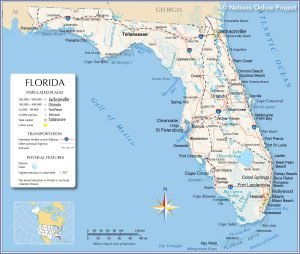“The Right To Initiate Enterprises”

So you’ve built up a pretty good cupcake business. Hardly a day goes by when you don’t get four or five orders. You’re happily baking away in your own kitchen, the same one your dinner is prepared in, when you are suddenly notified that you have to either establish a second kitchen or shut down your business. Think it can’t happen? Well, it actually did to a young girl who obviously doesn’t have the money to put in a separate kitchen for her cupcake business, let alone open her own bakery. She was forced to cancel all her orders. Sound unfair? You bet it is, and it’s a prime example of the government sticking its nose into people’s private lives when really all that’s going on is a kid who is learning the rudiments of running her own business. That has to be discouraging and now she’ll wonder if it’s even worth opening her own bakery when she grows up if they’re just going to shut that down, too. You want to talk about how the economy is stagnating, this is a lot of the reason why. Regulation has gotten so out of control that businesses spend billions of dollars every year just to make sure they have everything covered, and even then they get fined for some obscure line item they’ve never heard of. The effect goes right down to a little coffee shop near me that is struggling to raise the funds to make their place handicapped accessible. I have to give them credit for trying, but it has to be frustrating that, in the meantime, they could get sued by somebody in a wheelchair who wanted to get a cappuccino but couldn’t because there was no ramp. And I can’t do much more to help them than buy a cup of coffee whenever I’m in town.
Ideally, all businesses would operate honestly and produce quality products with no fear of employees throwing their wooden clogs, “sabot” in French, into the machinery over a labor dispute. This is where we get the term “sabotage,” folks. It reflects on the entire industry when you get a massive cheat like that large cryptocurrency exchange that disappeared without warning. Now people get nervous when their favorite exchange has hiccups. That’s why regulation exists in the first place – not so much because old white men in Congress are afraid of cryptocurrencies as because no one likes cheaters or poisoned rat meat.
The problem comes when regulatory organizations become bloated up bigger than they really need to be and their entrenched bureaucracies try to justify their own existence by making the regulatory code so complex and contradictory that it could fill a large bookshelf if printed out. This is basically law that Congress never voted on, and it was never ruled unconstitutional because the very existence of the regulatory code is not challenged in court very much.
In a less than ideal world, the rules of the marketplace apply. If one bakery refuses to sell you a wedding cake, surely there are two or three others who would just shrug and figure that one stupid cake isn’t worth driving their business into the ground over. The courts need only get involved if the business sold you a contaminated cake that made you and your wedding guests sick and then refused to pick up the medical tab. That way, responsibility in business still exists, and you decide where to spend your money. If one bakery causes you embarrassment, another might appreciate your business more and review sites are always popular places to air your grievances or praise somebody’s customer service. The bakery you end up buying the cake from could end up picking up enough business to warrant hiring another baker while the one who turned you down wonders what happened as he turns off his lights for the final time. That’s how the free market system works.
Of course, big entrenched corporations don’t help. They hate competition so much that they’d almost rather put up with the regulation than see little independent operators put out a taxi sign on their personal vehicle or rent out rooms to travelers. In a truly free market system, the big corporations could only see that as incentive to improve their products and keep their overhead under control so they can pick up more repeat business from customers who like their good service at a reasonable price. Because those large corporations have a bad reputation for keeping politicians in their hip pockets for a reason, they can often convince governments at the city, state and federal levels to unfairly regulate those small independent operators so they won’t have to go through all the trouble and expense of competing with them. This throws the idea that the law should apply equally to everybody out the window and discourages the people who would otherwise be able to fill a need they see in their community from even bothering to set up shop.
You have your own hobbies and interests, and you can be sure that some people have turned that into successful businesses before you. There’s a story that eBay was founded as a place where collectors could buy and sell Pez dispensers. Amazon hasn’t forgotten that it started out as a bookseller. So you can start out with something that interests you, even if it’s knitting scarves, and branch out from there. The government should actually be happy for you if it really cared about boosting the economy and pretty much keep its nose out of it unless you’re doing something obviously illegal like fraudulently selling cheap knock-offs of big brand names. Really it’s better in the long run to become known as the maker of a good cheap pair of boots than risk being sued by Ugg for trademark infringement. Then government regulators will have even less of a reason to exist – not that I see a career in that field as any kind of fulfilling one as it is.
If you really want to get out of the reach of government regulators so you can just start up your own enterprise without much interference, you do have a few options. You could see what the hot products are on the black market. You could move out to the ocean beyond national boundaries, a popular option for people who have finally gotten sick of the government trying to dictate how they can live their lives. Or you could move to Mars. It’s a dry, dusty planet with wicked dust storms and an unbreathable atmosphere, but one that has some selling points like the fact that it’s a frontier that hasn’t been touched by federal regulators very much.
Some Items To Make Business A Little Easier












